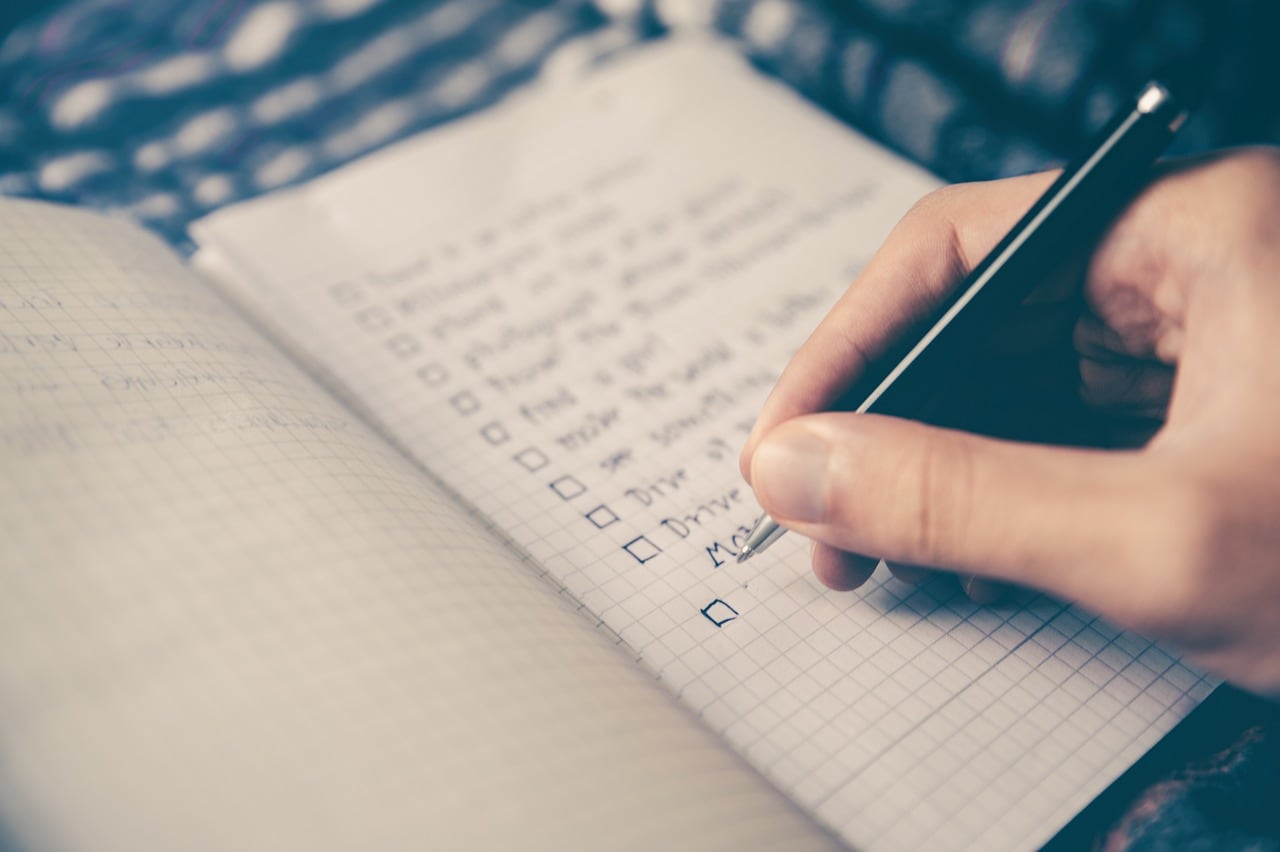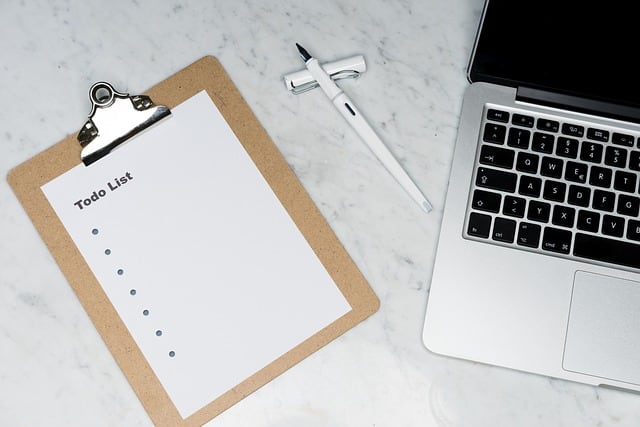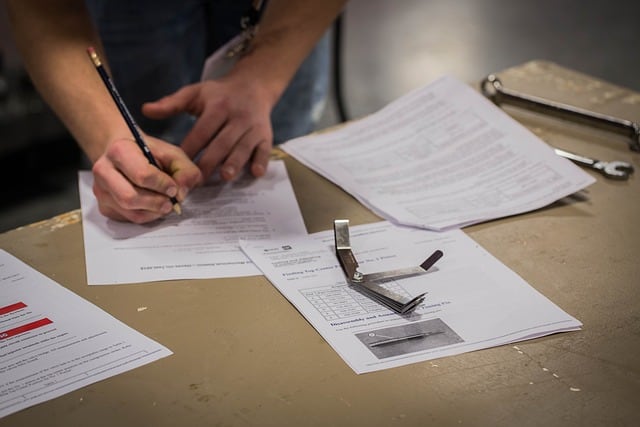How to Use an Event Planning Checklist to Stay Organized and Stress-Free

Are you ready to take your event planning skills to the next level? Whether you’re a professional planner or just looking to plan an event for friends and family, having a detailed checklist can be invaluable. This event planning checklist is designed to help you through each step of the process, from pre-planning all the way up to execution. With this guide in hand, you will have all the information needed to ensure that your event runs smoothly and successfully. So let's get started!
Definition of Event Planning Checklist
An event planning checklist is essential for any type of event, whether it’s a large corporate event or a small family gathering. It helps you keep track of all the details and make sure nothing gets forgotten. A good checklist should include everything from setting goals and budgeting to finding the right venue, choosing a theme, selecting vendors, and much more. With an effective checklist in place, you can ensure that your event will be a success. An event planning checklist also helps to keep everyone on the same page by providing a clear overview of tasks that need to be completed before the big day. Having one in place allows you to delegate responsibilities and keeps everyone organized throughout the planning process.

A comprehensive event planning checklist is an essential tool for creating unforgettable experiences that will be remembered for years to come. With the help of a detailed checklist, you can ensure that your next event will be a success! Ready to get started? Our next section will explore the purpose of an event planning checklist and how it can help make your event run smoothly.
The Event Planning Checklist helps with organizing events
When planning any type of event, having an event planning checklist is essential to ensure everything runs smoothly. A good checklist should include all the details needed for the event, such as setting goals and budgeting, finding the right venue, choosing a theme, selecting vendors, and more. With this in place, you can be sure that your event will be a success.
An event planning checklist also helps with a delegation of tasks and keeps everyone organized throughout the process. You can easily assign responsibilities to others while keeping track of who is responsible for what so nothing gets missed.
Additionally, having an event planning checklist ensures that everything runs according to plan on the day of the event. You can use it as a reference point to make sure all tasks are completed on time and there are no surprises on the big day. By using a detailed checklist, you can be sure that your next event will be successful and that everyone involved will have a great time!
Pre-Planning Step
Before you start planning your event, it’s important to take a step back and consider all of the pre-planning steps. This includes setting goals and objectives for the event, creating a budget, researching potential venues and vendors, finding an appropriate theme, and more. Taking the time to think through these details ahead of time will help ensure that your event planning process goes smoothly.

You should also consider who will be involved in the event planning process and what their roles may be. If you’re working with a committee or other groups, make sure everyone knows their responsibilities so that tasks can be delegated appropriately. Additionally, you may want to create an app or other reminders to keep everyone on track with tasks such as guest list management and cost estimates.
By taking care of these pre-planning steps ahead of time, you’ll have peace of mind knowing that you’ve got everything covered before diving into the nitty-gritty details of event planning!
Once you have taken the time to lay out all of the groundwork for your event, you'll be ready to start turning your vision into reality! Get ready to set some goals and objectives – let's make this event one that everyone will be talking about!
Transform your dreams into reality by setting clear goals and objectives!
Setting goals and objectives is a critical part of event planning, as it will help you stay on track and measure progress throughout the process. It's important to start by setting a measurable goal for your event, such as how many people you want to attend or how much money you want to raise. From there, you can break down this goal into smaller, more manageable objectives that will help guide the planning process.
These objectives should address all aspects of the event including budgeting, venue selection, speaker selection, marketing and promotion, and more. Having measurable objectives such as deadlines for each task will help ensure that everything stays on track. Additionally, they will give you something to refer back to while making decisions throughout the rest of the planning process.
Once you have set clear goals and objectives, it’s time to get started on turning your vision into reality! With a clear plan in place and a timeline for each task in hand, you're ready to start making this event one that everyone will be talking about!
Establish Budget Parameters
When it comes to event planning, budgeting is essential. A well-defined budget will help you determine which activities are realistic for the available funds and set expectations with vendors, keeping your event on track and within your financial means.
Start by getting a clear idea of the total amount of money you have to work with. This should include any contributions from sponsors or other sources, as well as any additional funds that may be made available as needed. From there, determine how much specific elements of the event will cost and build up a line item budget that reflects those costs.

Once you know how much money you have to work with overall, it’s important to prioritize which elements are most important based on your goals and objectives. Make sure to factor in some wiggle room for unexpected expenses or last-minute changes that may arise throughout the planning process. Additionally, make sure to leave some room for unexpected opportunities that may come up during the event itself.
Creating a flexible yet thorough budget will help keep your event running smoothly and ensure everyone involved is aware of their financial responsibilities from start to finish!
Choose a Venue
Choosing a venue for your event is one of the most important decisions you'll make! The right venue can help make your event memorable, while a poorly chosen one can easily turn it into a flop.
When selecting a venue, consider the type of event you are planning and the vibe you want to create. Think about the size and layout of the space and make sure that it can comfortably accommodate everyone who will be attending. You may also want to consider whether or not there is adequate parking or public transportation nearby for guests. Additionally, check for any soundproofing or other considerations that might be necessary depending on the type of event you are hosting.
Finally, consider cost when choosing a venue. While some venues may be more expensive than others, they may also come with amenities such as catering services or audio-visual equipment which could save money in the long run. It’s important to weigh all of these factors before making your final decision so that you find the perfect venue for your event!
Research Potential Vendors and Suppliers
Researching potential vendors and suppliers is an important part of event planning. It's essential to find reliable, experienced vendors that offer quality products and services at the right price. Start by looking for vendors who specialize in the type of event you are hosting. For example, if you’re organizing a wedding, look for caterers, florists, photographers, and DJs that have prior experience with similar events.
When researching potential vendors and suppliers, read online reviews and ask for referrals from past clients or colleagues in your field. Additionally, ask vendors to provide samples of their work so you can get an idea of what they can do before moving forward with any agreements. Finally, compare quotes from multiple vendors to ensure that you are getting the best deal possible without sacrificing quality.
Once you’ve found a few potential vendors or suppliers that meet your needs and budget, it’s time to start negotiating! Make sure to read over contracts carefully before signing anything so there are no surprises down the line. With a bit of research and patience, you’ll be sure to find the perfect vendor or supplier for your event!
Create a Guest List and Invitations
Creating a guest list and sending out invitations is one of the most important steps in event planning. You will need to decide who you want to invite, how many people you want to invite, and what kind of invitations you’ll send.
When creating your guest list, consider who would be interested in attending your event and how many guests are allowed at the venue. It’s also important to think about the type of event you are hosting so that you can be sure to invite the right people. Once you have a final list of names, make sure to double-check for any typos or errors before sending out invites.
When choosing invitations for your event, there are many options available including digital invitations or physical cards. Digital invites are a great option if the budget is tight as they are often cheaper than printed cards. However, if you have the budget for it, printed cards can create a more special experience for your guests! No matter which type of invitation you choose, make sure all the necessary information is included such as date and time, dress code, location details, and RSVP instructions.
Planning Step
Planning an event can seem daunting at first, but with the right steps and processes in place, it can be a breeze! One of the most important steps you need to take when planning an event is to create a timeline. This will help keep you organized and on track for all the tasks that need to be completed leading up to your event.
Start by outlining each task that needs to be done and assign deadlines for each one. You can also break down big tasks into smaller chunks if they look overwhelming. Additionally, add specific details such as who is responsible for completing each task or what materials are required. This will help ensure nothing falls through the cracks!
When creating a timeline, try to give yourself plenty of time before the actual event day so you can make any necessary adjustments along the way. And don’t forget to factor in time for unexpected delays or hiccups—it’s always better to be prepared for anything that could come up!
By creating a timeline and staying organized throughout, you'll be able to make the most of your event planning process. Get ready to take it to the next level and finalize those venue details!
Finalize Venue Details
Finding the perfect venue for your event is a must-have! Not only does it set the tone for your entire event, but it also plays an important role in accommodating the attendees and making sure everyone has a great time.
When finalizing venue details, be sure to consider all of your options—whether it’s an indoor or outdoor space, a local or out-of-town location, etc. Also, think about what kind of amenities are available at each venue and if they can accommodate any special requests you may have.

Also be mindful of any restrictions or regulations that may apply at certain venues—such as noise levels, capacity limits, etc.—and make sure you’re able to adhere to those rules. Once you’ve narrowed down your choices, take some time to visit each one so you can get a better idea of how well they match your vision.
With these tips in mind, you'll be able to find the best venue that fits both your budget and event needs!
Assemble an Event Committee or Designate an Event Manager
Assembling an event committee or designating an event manager is one of the most important steps when it comes to planning a successful event. You must have someone in charge who can help coordinate all aspects of the event, such as budgeting, logistics, and programming.
Having a team of people behind your event can make the entire process run much more smoothly. An effective committee should include members from different departments and backgrounds so that each person can bring something unique to the table. It’s also important to make sure everyone understands their roles and responsibilities within the committee.
In addition to an event committee, having a designated event manager is key for making sure everything runs according to plan. Your event manager should be someone with great organizational skills, excellent communication abilities, and plenty of experience in managing events. They should be able to take charge of all aspects of the planning process while also providing support and guidance for the rest of your team.
By assembling an event committee or designating an experienced event manager, you’ll ensure that your upcoming event is well-organized, efficient, and successful!
Develop a Detailed Timeline and Schedule of Events
Developing a detailed timeline and schedule of events is an essential part of event planning. It's important to create a timeline that outlines all the tasks that need to be completed before, during, and after your event so that everyone involved knows exactly what needs to be done and when.
Start by outlining the major milestones you need to meet to make sure your event runs smoothly. This includes tasks such as finalizing your guest list, securing sponsorships, creating promotional materials, setting up the venue, and more. Make sure you leave plenty of time for each task and factor in any potential delays or unexpected hiccups along the way.
Once your timeline is created, start developing a schedule for the day of the event itself. Make sure you know what time each activity is taking place and who will be responsible for making sure it runs smoothly. You should also consider adding in some extra time between activities just in case something goes wrong or takes longer than expected.
Creating a detailed timeline and schedule will help keep everyone on track throughout the entire event planning process - from beginning to end!
Identify Potential Sponsors and Seek out Donations
Identifying potential sponsors and seeking out donations are key components of any successful event. Finding the right sponsors and donors can help you cover the costs of your event, while also giving your event more visibility and credibility.
Start by researching companies that may be interested in sponsoring or donating to your event. Consider their products or services, target audience, and any other factors that may play into their decision to sponsor your event. Make sure you understand what type of sponsorship they’re willing to offer so you know what kind of value they will provide in return for their donation.
Once you’ve identified potential sponsors, reach out with an email or a letter detailing all the details about your event. Be sure to explain why it aligns with their mission and how they will benefit from being associated with it. Be creative! Many times, companies may be willing to provide more than just money if you can present them with an interesting opportunity or idea.
Finally, make sure you thank all sponsors for their support after the event is over. This gesture will help build relationships between you and potential future sponsors as well as show appreciation for those who have already helped make your event a success!
Choose an Event Theme, Activities, Entertainment, Food, Drinks, etc.
Choosing the right theme, activities, entertainment, food, and drinks for your event can be overwhelming. But with a little thoughtfulness and creativity, you can make sure your event is one to remember!
Start by selecting a theme that resonates with the purpose of your event. This could be something as broad as “summer fun” or as specific as “an evening in Paris.” From there, think about activities that will help bring the theme to life – maybe it’s a game night for a “board game party” or lawn games for a “backyard barbecue.” Next up is entertainment – consider hiring live musicians or DJs, hosting an interactive workshop or show, or arranging for video presentations. And finally, don't forget about food and drinks! Serve up classic favorites like burgers and fries for a casual gathering or get creative with themed dishes for something more unique.
With all these elements in place, you'll have everything you need to create an unforgettable experience for your guests!
Execution Step
Creating a successful event requires you to stay organized and on top of the details. One of the most important steps in successful event planning is execution. Execution involves bringing together all the components planned for your event and ensuring everything runs smoothly on the day of.
To ensure that your event goes off without a hitch, make sure to create an event checklist in advance. This should include tasks such as confirming vendors, setting up decorations, organizing catering services, and double-checking all guest list information. It’s also important to delegate tasks to other team members so that everyone is aware of their responsibilities ahead of time.
On the day of the event, arrive early to check that everything is set up according to plan and delegate tasks as needed. Follow up with vendors throughout the day to ensure they are meeting expectations and staying on schedule. Lastly, don’t forget your role – be present and available throughout the entire day to provide support where needed!
With a little bit of planning and preparation, your event will be sure to run smoothly. By staying organized and keeping on top of the details, you can rest assured that everything will go according to plan. Get ready for an amazing event! Now, let's move on to how you can create promotional materials for the event and make sure it reaches its target audience!
Create the Promotional Materials for the Event
When it comes to creating a successful event, promotional materials are essential. Promotional materials can help you reach the right audience and increase attendance at your event. Whether you’re creating an event website, designing posters, or putting together email newsletters, make sure to include important information such as the date and time, location, ticket prices (if applicable), and any special offers that may be available.
Other promotional materials may also include social media posts on Facebook or Instagram, press releases for local newspapers or radio stations, and flyers distributed around town or in popular locations such as universities or cafes. Make sure to utilize all of the resources at your disposal!
It’s also important to have a plan for how you will promote your event leading up to the day. Schedule emails and social media posts in advance so that they’re sent out regularly and remind people about your upcoming event. Additionally, don’t forget to update your promotional materials with new information throughout the planning process – this will keep them fresh and interesting!
Finally, make sure that you create a buzz around your event by engaging with potential attendees on social media platforms and offering incentives such as discounts or freebies. With a little bit of effort and creativity, you can create effective promotional materials that will help you reach your target audience and maximize attendance at your event!
Assign Tasks to Volunteers or Staff Members
When organizing an event, one of the most important steps is assigning tasks to volunteers or staff members. Having a clear plan and assigning each person a specific role will ensure that everything runs smoothly on the day.
Start by creating a list of all the tasks that need to be completed before, during, and after the event. Assign tasks based on individual skills or interests – this will help motivate people and make sure everyone is engaged in their work. When delegating tasks, make sure to provide clear instructions and timelines for completion so that everyone knows what’s expected of them.
When assigning roles, consider any potential conflicts between volunteers or staff members as well as their availability for certain dates or times. Additionally, it’s important to provide support throughout the process – don’t forget to check in with people regularly and offer encouragement or advice when needed!
Finally, remember that communication is key when it comes to successful task delegation. Make sure you keep all volunteers or staff members informed about changes in plans or new developments so that everyone stays on track and no one feels out of the loop. With a bit of planning and preparation, your event is sure to run like clockwork!

Comments